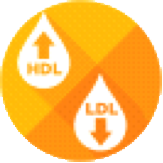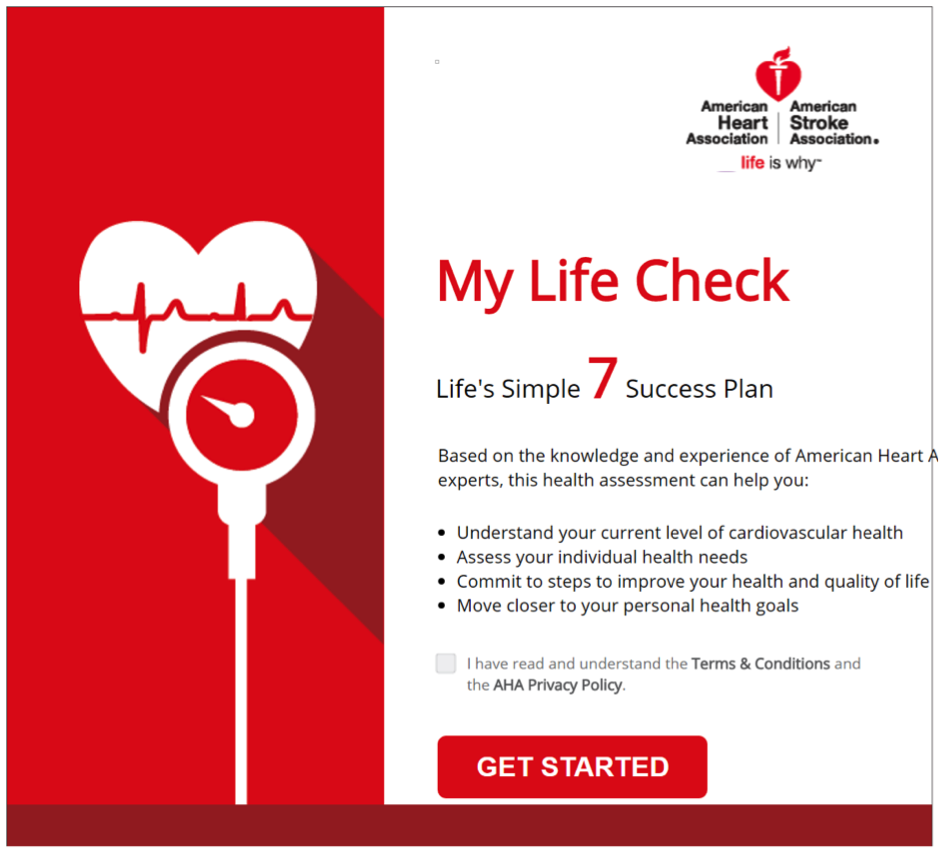Life’s Simple 7 – Your Cardiovascular Health
LIFE’S SIMPLE 7 – REDUCE YOUR HEALTH RISKS!
Research has shown that approximately 25%, or 1 in 4 adults in the U.S. will suffer heart failure in their lifetime. How do you avoid becoming one of these statistics? The American Heart Association has conducted studies on 7 simple lifestyle components that will help you to improve your heart health:
 |
STAYING ACTIVE – physical exercise and activities strengthen your body, mind and reduce your risk for cardiovascular issues. Find exercises and activities you enjoy and can engage with at least 12 times per month and consult with your primary care physician if you are just starting. |
 |
EATING HEALTHY – the quality and quantity of the nutrients you put into your body will affect how your body moves, repairs, rests and functions in the long term. Consult with a nutritionist or your primary care physician to optimize your diet and reduce your lifetime risk of cardiovascular issues. |
 |
WATCHING YOUR BMI – rather than worrying about weight, have your Body Mass Index (BMI) calculated. The measurements of the BMI will closely approximate the body’s percentage of fat. Ideally, your BMI should below 25 in order to significantly reduce the likelihood of cardiac health issues. If your BMI is 25-29, you are at an average risk for cardiovascular disease and heart failure, and if it is 30 or higher, your risk is elevated into the highest category. |
 |
BLOOD PRESSURE – your blood pressure measures your vascular health by testing how hard your heart has to work to push blood through your veins and arteries; the higher the pressure, the greater the risk of damage being caused to your heart and veins (i.e. hypertension). |
 |
BLOOD CHOLESTEROL – there are 2 types of cholesterol: low-density lipoprote (LDL) and high-density lipoproteins. Lipoproteins are made of fat on the inside and protein on the outside. These packages are essential for your body to function properly. An unhealthy amount of LDL cholesterol, however, may clog your arteries. |
 |
BLOOD SUGAR – knowing your blood sugar is just as important as knowing your blood pressure and cholesterol. The American Diabetes Association states the approximately 86 million American’s are currently prediabetic, a condition that your physician can identify by testing your blood sugar levels. Prediabetes can be managed with diet and exercise to prevent it from becoming full blown diabetes, a condition that raises your risk for heart disease. |
 |
TOBACCO USE – smoking damages almost every organ in your body, and the chemicals in tobacco can harm the structure and function of your blood vessels and damage your heart. |
Take the Simple 7 Quiz on the American Heart Association Website

Link to Simple 7 Quiz:
http://tools.bigbeelabs.com/aha/tools/mlc/
Is Cardiovascular Health Related to Memory Loss?
Researchers and health care professionals now know how important heart health is for brain health. There is a new saying that “what’s bad for the heart is also bad for the brain.” Cardiovascular health conditions that have been linked with heart disease — high blood pressure, high cholesterol, and diabetes — have also now been linked to memory problems. We are also understanding more about the link between the link between injuries to the brain tissue caused by “silent” strokes and the development of symptoms of memory loss and Alzheimer’s disease.
Get Involved in a Research Study
We are currently enrolling participants in the Healthier Vessels, Healthier Brain Study (HVHB). The purpose of this study is to learn how vascular risk factors, such as high blood pressure, cholesterol, and/or blood sugar, may also be related to increased risk for developing Alzheimer’s Disease. This study is designed to examine biological markers for Alzheimer’s Disease risk found in the blood and cerebral spinal fluid of individuals who have either a high or low levels of vascular risk factors. Because these risk factors can be treated, our goal is to use the knowledge gained from this study to design programs that may reduce the risk of developing Alzheimer’s Disease and may also aid in earlier detection. Learn more about the study: http://adrc.usc.edu/healthier-brain-study/